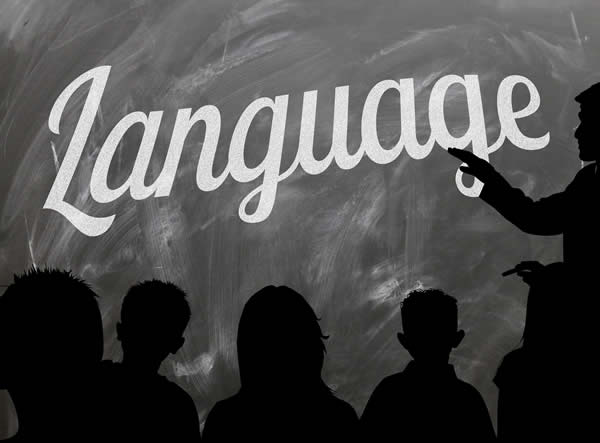by Miguel

“Chosen words are the best way to communicate”
Words are the essential part to communicate either in the case of reading or writing. Are you planning to learn a new language? Remember to focus on vocabulary first, next to grammar. Often it is noticed students or people who start to learn the language, initially focuses on grammar. “Words are the building- blocks, whereas grammar is the connector”. Have you ever noticed a baby learning to speak? they are taught to speak basic words first and then gradually then learn to set those words into a sentence with the help of grammar.
So vocabulary is the primary thing that students should focus on. Without getting sufficient knowledge and grip on words, they can never be able to express their ideas and feelings. Vocabulary has always been an essential part of the curriculum. When kids are taught they are taught through vocabulary method, have you ever notice kids while learning to speak, they speak words first to express their thoughts then they grab the grammar. For a better vocabulary memory, you need to access five to seven times one word in the initial stage of learning.
Now what vocabulary includes- It is not only words, it also includes the meaning of the words, pronunciation, context, orthography, conjugation, synonym and antonym.
Vocabulary is the basic foundation of speech. Idioms, grammar, and such other complex structures are built on the basic foundation of vocabulary. Remember one wrong word can change the meaning of the whole sentence. For example, a man went to Italy and was looking for flower, he asked a boy what is “flower” called in Italy, the boy said “Farina”- which actually meant “flour” not “flower”, he misguided the man, the man went to the shop and said- “where I can get flower? “in Italian, the shopkeeper gave him “farina” instead of “fiore”- now, the man did not get the right item he was looking for, so, it is very important to know the basic vocabulary of “flower” in Italian “fiore”, which could have helped the man to get the right item. So, it is important to know the basic vocabulary as that is the vital mode of communication.
The larger the stocks you have in your vocabulary, the more easily you communicate just like a native in the particular language. Your brain memory has different memory system to capture and strengthen your vocabulary- procedural memory and declarative memory.
Procedural memory is used to learn the skills such as grammar rules, cooking or knitting. The declarative memory helps to memorize the word, number, and phrases. Declarative words help to process the chunks and get fluent in speech. Their pre-constructive chunks help to prepare more native-like sentences.
Exercise is a supporting aid for any particular sports; many people do not learn or do exercise as an end goal. In a similar way learning vocabulary will not only help to speak the native language to its best but will also help you to be a better communicator, reader, thinker, speaker. This will boost your confidence and will help to gain more in your business or job. It will be easy for you to communicate if you can have a good grip on the particular language.
When you are trying to learn a language initially it becomes tough to do so. You become bored, and start leaving hope when you find it difficult. But easy and smart vocabulary will never let you down. Choose a process that is best for you, and easy for you to remember- it can be image association, books, listening applications, flashcards or any vocabulary application. Just invest 15- 20 mins of the day to learn the vocabulary, I bet, you will love it!
Increasing your vocabulary is easy and your ability to absorb the words is easy and smooth. This can open up a new opportunity for you. You can keep on studying your vocabulary even while you are traveling, doing household work or in your free time. For this you do not need any book, or not required to listen to any CD, you can do it through your mobile application.
Miguel has years of experience as a leading translator and linguist at Translate Day. His proficiency to deal with all nationals could offer solutions to customer translate queries in legal documents translation, birth certificate translation, academic translation and many more.
Writing systems | Language and languages | Language learning | Pronunciation | Learning vocabulary | Language acquisition | Motivation and reasons to learn languages | Arabic | Basque | Celtic languages | Chinese | English | Esperanto | French | German | Greek | Hebrew | Indonesian | Italian | Japanese | Korean | Latin | Portuguese | Russian | Sign Languages | Spanish | Swedish | Other languages | Minority and endangered languages | Constructed languages (conlangs) | Reviews of language courses and books | Language learning apps | Teaching languages | Languages and careers | Being and becoming bilingual | Language and culture | Language development and disorders | Translation and interpreting | Multilingual websites, databases and coding | History | Travel | Food | Other topics | Spoof articles | How to submit an article
[top]
You can support this site by Buying Me A Coffee, and if you like what you see on this page, you can use the buttons below to share it with people you know.

If you like this site and find it useful, you can support it by making a donation via PayPal or Patreon, or by contributing in other ways. Omniglot is how I make my living.
Note: all links on this site to Amazon.com, Amazon.co.uk
and Amazon.fr
are affiliate links. This means I earn a commission if you click on any of them and buy something. So by clicking on these links you can help to support this site.
[top]